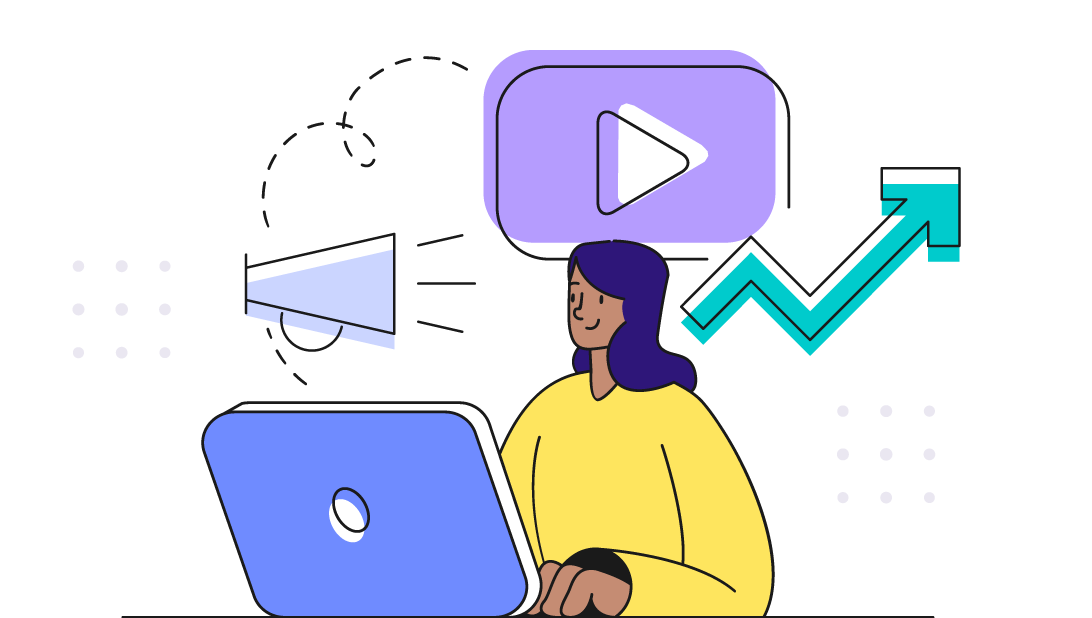



Sometimes the search engine just doesn't offer the best path to results when it comes to lead generation.
This can be especially true (and frustrating) when it comes to software marketing, where products can be highly specialized, expensive, and appealing to a relatively small number of consumers.
Sure, you can create an inbound marketing strategy that relies heavily on compelling content that's loaded with strategically selected keywords with all the conversion paths in place to convert visitors to leads. You can spend hours and hours trying to keep your website on top of search results. And you can have a well-designed website that pulls prospects into and through the sales funnel like a magnet. But what if the best prospects aren't out on the Internet looking for you with keywords? What if the only people who find your website are unqualified leads? Or, worst of all, what if nobody knows your products or services even exist?
What then?
Then it's time to pivot and take your inbound marketing strategy in a less common direction.
Specialized software marketing calls for a specialized marketing plan. Relying on organic search traffic, or online traffic in general might not be the best path to attract the high-quality prospects you're looking for. You need a hybrid approach to inbound marketing strategy – one that has your online presence poised to convert your ideal prospects into leads even if other activities are used to drive traffic to it.
Here's how:
Over the last few years, there's been a sea-change in the advertising industry. Companies are increasingly spending larger percentages of their advertising budgets online. They're investing in website development, inbound marketing, and online ads.
And they might be missing out, especially if they're in the business of specialized software marketing.
Many consumers who could benefit from highly specialized software don't know they need it – some don't even know it exists – so they aren't likely to fire up a search engine and look for it.
That means you need to educate them, and that's where traditional advertising channels can come into play.
Advertising in newspapers, magazines, and trade publications (and even on TV and radio) can be great ways to raise awareness about your products and services. You get to pick where the ads run. You get to put them in places where they are most likely to reach your elusive audience. And you get to control the message, which should focus heavily on encouraging them to visit your website where you can engage them.
It's almost blasphemous to say or suggest, but search engines and social media are not panaceas of software marketing – especially when the software you're marketing is highly specialized.
Too many companies try to rely on search engines and social media to drive high-quality prospects to their websites and sales teams.
Unfortunately, they often wind up disappointed because they aren't viewing these tactics as part of a multi-faceted strategy. Social media can still be powerful, it's just that other means are needed to capture the ideal audience.
What you really want to do is create an inbound marketing strategy that leverages the power of many mediums – search engines, your website, traditional advertising, your sales activities and a solid LinkedIn strategy.
LinkedIn represents an avenue where you can push visitors to your website who have a higher likelihood of being qualified to buy your product. Help the right people to discover the material you've compiled there to educate them and help them solve problems.
This strategy, paired with sales staff who are trained to manage these types of leads can have a substantial impact on the volume of leads you're able to close from your website.
Sometimes the Internet at large just won't be the best avenue for generating the kind of results your business needs. Consider examining for ways to leverage your inbound strategy with avenues like LinkedIn for driving the right traffic to engage your online content.


Spot On co-founder and partner Susie Kelley is dedicated to leveraging technology to advance innovative solutions in highly regulated industries. Driven by the opportunity to elevate brands, she co-founded Spot On in 2012 after having spent 15 years honing her marketing skills in an agency. Susie leads business development with a personal touch, focusing on building lasting relationships with clients to meet — and exceed — their goals for business growth.
Get the latest and greatest posts sent straight to your inbox.


